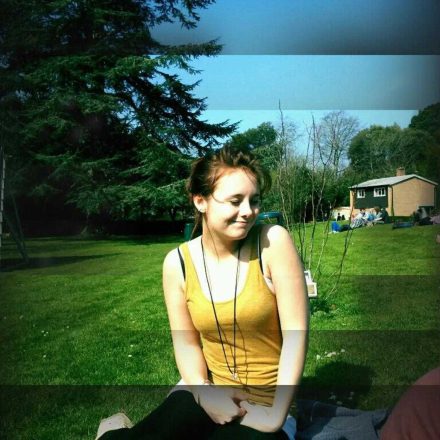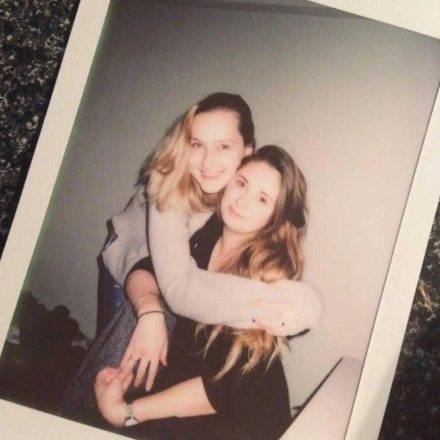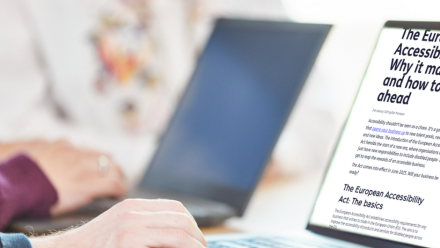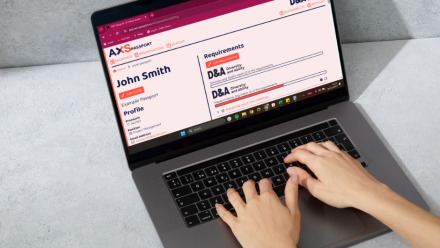To: Me, From: Me: Reframing Failure
13th December 2024 by Brigit Colclough

At 16, the phrase ‘reasonable adjustments’ would have meant absolutely nothing to me. Although I knew I had an autoimmune condition that would never go away, it never occurred to me that it would affect the way I interact with the world. Not even in the charity model, ableist thought of ‘she never let it stop her’ – I just never gave any thought to the idea that my experiences differed from other people’s.
Not that my body didn’t try to get me to take notice. Throughout the last few years of schooling, I pushed through illness after illness, frequently being told that I was making a fuss over nothing, burning myself out, or that I wasn’t trying hard enough. In my final year of college, a bout of glandular fever fell over my exams, and I failed my A-levels entirely. And still, it genuinely didn’t occur to me that I could have communicated with my college what was happening, asked for help, or that it was unusual to be put on 3 months of bed rest at 18 years old.
The Pub Years
Without the language or understanding of reasonable adjustments, I covered my shame by convincing myself—and others—that I was done with education. All I wanted to do was to work full-time and earn money. It felt proactive, grown up, and far removed from the idea that I couldn’t keep up with my peers.
I threw myself into the world of hospitality, from fine-dining restaurants to rural pubs. Drawn to the fast pace and constant change, it was exhilarating in its chaos. I revelled in the adrenaline and control of a perfectly run dinner service, the unspoken camaraderie of late-night shifts, and the cycle of competition and achievement. Fueled by nicotine and stubbornness, I thrived on the intensity, telling myself that exhaustion was just part of the deal.
In that environment, burnout wasn’t a warning sign—it was a badge of honour. The more tired, overworked, and stressed you were, the more respect you commanded. I wore my fatigue proudly, taking comfort in the promotions and praise that seemed to validate my efforts.
It’s hard to think that none of these raised any red flags at the time, but the comically tragic low lights included:
- Fainting in a commercial kitchen and being fired on the spot.
- Taking too much Pro Plus to stay awake, but was sent home for being too jittery (do not recommend).
- Slurring my words from exhaustion, prompting concerned customers to complain.
- Working 16-hour shifts for 10 consecutive days, falling asleep on the bus home and ending up back at the beginning of the line.
Every 18 months or so, my body would hit its limit. I’d crash in a spectacular blaze of ill health and frustration, retreating to my childhood bedroom, unemployed, ashamed, and unsure how to move forward.
Taking Stock
When I was 20, a major family event made us all stop and reflect. Suddenly, health became something we had to talk about and acknowledge – out of sight, out of mind was no longer working. Although we all share the same autoimmune condition, my parents have always been asymptomatic. For the first time, we were forced to consider that this wasn’t the case for my sister and me, and ignoring symptoms wouldn’t make them go away.
For the first time, I stepped away from full-time work and enrolled in university, reading Education Studies. I found my niche in Inclusive Education, focusing on disability theory and history for the first time. It was transformative—I began to see my own experiences mirrored in the course material and recognised how small adjustments could have changed so much for me.
Reframing my struggles as the result of an inaccessible system, rather than personal failure, was both liberating and challenging. Internalised shame clung to me, and I still felt like I was failing for not coping as well as I thought I should. My second year was particularly difficult, marked by a mental health crisis that left me living in my car while hiding it from those around me. Even then, I didn’t ask for help.

Finding an Inclusive Workplace
Learning to be gentler with myself has been an ongoing journey. After university, I deliberately sought out workplaces that valued inclusion and flexibility. That search led me to D&A, where I finally found a work culture that embraced my needs.
Even here, it took me two years to apply for Access to Work support because I was so used to managing without help. But in this environment, I’ve learned lessons that have fundamentally changed how I view my past experiences. Now, support and adjustments are something that I help people access, it’s so much easier to recognise where I can use them myself.
Here are some highlights:
- Noise sensitivity isn’t universal: Turns out not everyone has to listen to all background noise all the time, meaning they can’t concentrate on what they’re supposed to be doing.
- Solution: noise-cancelling headphones!
- Online meeting fatigue isn’t a personal failing: Long meetings leave many people drained and dissociative, not just me.
- Solution: set some boundaries, girl!
- It’s okay to work in the way that suits you: Drawing or handwriting my ideas doesn’t mean I should have to stay late to type them up.
- Solution: when you’re 29 you’ll be introduced to the love of your life, and it’s called the ReMarkable 2.
- Energy ebbs and flows: Feeling slower, sleepier, and foggier in winter is natural. Don’t blame the bear, blame the hibernation.
- Solution: flexible hours!
Reflecting Back
Our experiences shape us. While guilt, shame, and frustration shouldn’t define the journey of disabled people in school or work, I can’t entirely separate those feelings from the lessons they taught me. The absence of reasonable adjustments in my early life drove me to seek them so intentionally now.
I feel privileged to have reframed my experiences and to use that new lens to help others. Sixteen-year-old me did the best she could with the tools she had. Now, through my work at D&A, I get to pass those tools on.


